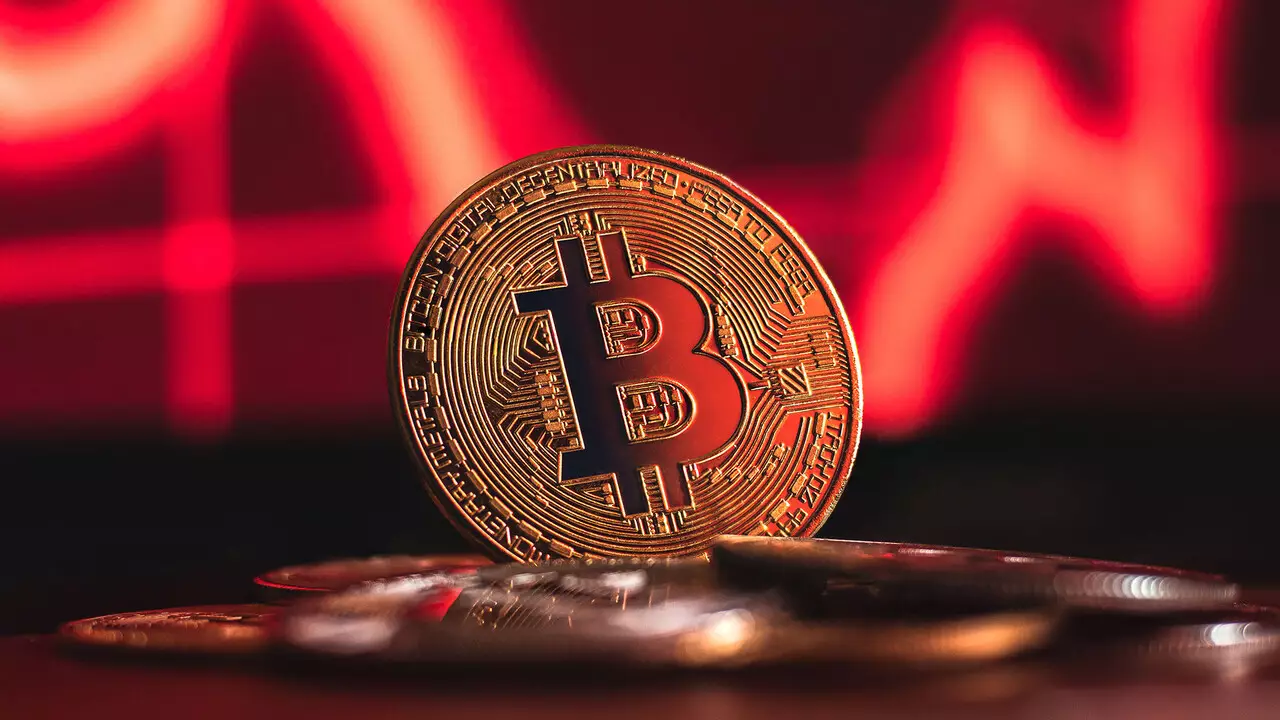The cryptocurrency world is often painted with an exhilarating brush, filled with tales of dramatic gains and catastrophic losses. And yet, there lies among these legends a somber figure, a giant that once roamed the crypto landscape but fell violently from grace—Mt. Gox. A shadow of its former self, this Tokyo-based exchange captured approximately 70% of all Bitcoin transactions at its peak. Today, it resurfaces once more, stirring echoes of suspicion and intrigue. The latest revelation—a colossal movement of over 11,501 Bitcoins valued at a staggering $1 billion—has sent ripples through the digital currency community. Is this a promising turnaround, or a harbinger of something more ominous?
Secrets of Wealth Unearthed
Arkham Intelligence’s meticulous tracking of on-chain data revealed that in March alone, Mount Gox executed three distinct Bitcoin transfers totaling over 35,000 Bitcoins. These were not mere trivial transactions; rather, they represent significant sums that raise eyebrows and ignite speculation. With each Bitcoin transferred, the specter of the exchange’s catastrophic collapse resurrects. Despite their claim to operate under strict editorial policies and care, many are left wondering if the ghosts of the past will rise again to haunt the unsuspecting investors.
Critics argue that the idea of a cryptocurrency exchange having access to such substantial reserves raises crucial questions about transparency and accountability. During its peak, Mt. Gox was a titan of industry, ultimately plunged into turmoil after losing around 850,000 Bitcoins. The subsequent bankruptcy created a crisis of confidence in the cryptocurrency industry. As Mt. Gox moves billions in Bitcoin, one must ponder—has the industry learned anything from its mistakes?
The Long Road to Redemption
In a complex dance reminiscent of a phoenix rising from the ashes, Mt. Gox must navigate an intricate web of creditor repayments and restitution plans. A court-appointed trustee now oversees this labyrinthine process, given that the exchange has until October 31, 2025, to compensate affected customers. The promise of reimbursement is potent; however, faith in the system has naturally waned. The crypto spirit hinges on decentralization and independence, yet here we find ourselves shackled to an antiquated traditional system designed to facilitate reparations—a paradox that does not escape the perceptive observer.
While it is pivotal for Mt. Gox to regain some credibility, the inherent contradictions cannot simply be brushed aside. Promises of transparency and accountability sit uneasily against a backdrop of past failures. Moreover, the current disposition of cryptocurrencies leans heavily on innovative solutions, such as Decentralized Finance (DeFi) frameworks, which inherently challenge the need for traditional custodianship.
The Ripple Effect on Market Sentiment
Each Bitcoin transaction carries weight far beyond its inherent value. The transfer of over 11,000 Bitcoins triggers a chain reaction within market sentiment, demonstrating how susceptible the cryptocurrency ecosystem is to the actions of a few. With more than 35,000 Bitcoins still under Mt. Gox’s control, a potent fear lurks among investors: will these newly liberated assets flood the market, deflating prices and shaking the very foundation of the cryptocurrency market?
Such movements aren’t just financial; they’re psychological. Investors traditionally seek stability, and when suddenly faced with the specter of a once-fallen titan stirring from its slumber, discomfort reigns. As decisions are hashed out behind closed doors, the uncertainty fosters hesitancy among investors, who are now again gauging the viability of cryptocurrencies. Those in the center-right liberal sector prefer some element of order and stability—traits that Mt. Gox’s transgressions starkly contradict.
Trust: The Elusive Commodity
Trust within the cryptocurrency community is not just desirable; it is essential. The transition from the mainstream banking system to decentralized finance relies heavily on the notion of trustless systems, where no intermediary is required. However, a prominent exchange with a tarnished past, much like Mt. Gox, inherently complicates the matter. Trust becomes an elusive commodity, often reliant on historical data that bruises confidence. Can Mt. Gox redeem itself effectively, or will its history persist as an indelible tattoo marking the darker chapters of cryptocurrency?
In dissecting Mt. Gox’s latest transfer operations, one cannot help but feel the urgency for a balance between innovation and system integrity. The cryptocurrency market deserves better than to be shackled to its storied past. Enforcing higher standards of accountability can help mend the collective sentiment, but only if concerted and sincere efforts from those in charge can deliver a newfound ardor that invigorates both investors and market participants alike.


Leave a Reply